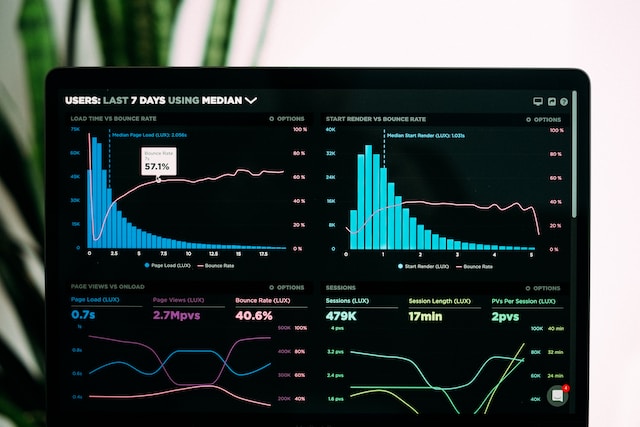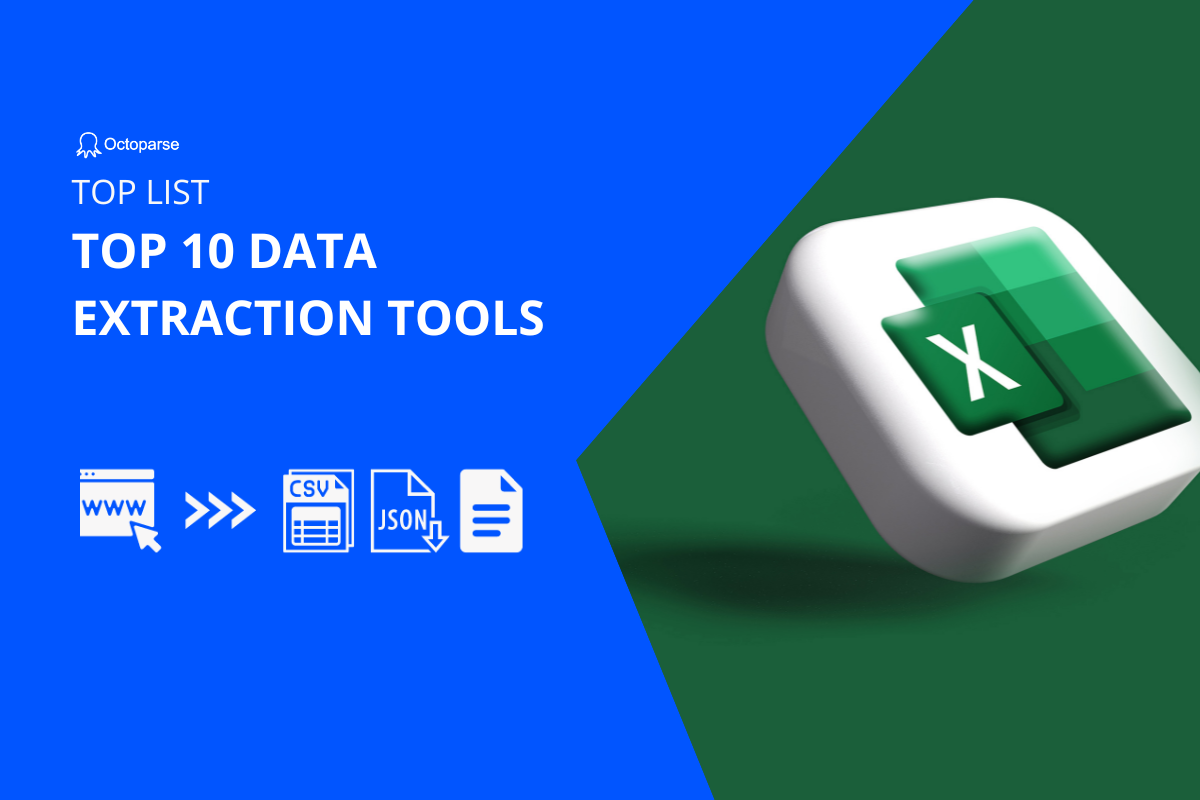Web crawlers play an extremely important function in today’s digital world. They function as automated bots that methodically search the internet, indexing web pages and accumulating pertinent data. This allows organizations to remain competitive by analyzing market trends, customer behavior, and industry information. Furthermore, web crawlers make effective data collection for research possible, providing firms with useful insights to support informed decision-making.
Open-source web crawlers are important because they are accessible and collaborative. They provide developers with low-cost data extraction options while also creating a community-driven environment for continual growth and innovation. Furthermore, these free top web crawlers empower developers by providing configurable capabilities and adaptability to various online scraping needs.
Best 7 Web Crawling Solutions in 2025
TOP 1: Octoparse
When it comes to web scraping, Octoparse stands out as a no-code solution that empowers users with a simple interface and strong functionality. This new application is intended to ease the data extraction process, making it available to a wide variety of users, from beginners to expert engineers.
- Point-and-Click Interface: Octoparse allows users to develop web scrapers without writing a single line of code. The simple point-and-click interface enables a quick selection of data fields and navigating across page features.
- Advanced Data Extraction: Octoparse provides comprehensive data extraction features, allowing users to extract a variety of data kinds such as text, pictures, and tables. Because of its adaptability, it can extract a wide range of information from many websites.
- Scheduled Extraction: Octoparse’s scheduling functionality allows users to plan automatic extractions for certain periods. This guarantees that the most recent data is always available without user intervention.
- Cloud Service: Octoparse offers a cloud service option, which allows customers to conduct web scraping activities in the cloud. This feature improves scalability while reducing the demand on local systems.

TOP 2: Scrapy
Scrapy is a strong and adaptable Python framework for web scraping and data extraction. Its strong features and broad community support have made it a popular option among developers and data aficionados alike.
Scrapy’s architecture is intended to be simple and adaptable, allowing developers to quickly construct effective web scrapers. Its modular architecture allows users to create scalable and complicated scraping projects while keeping tight control over the scraping process.
Scrapy’s robust community support and detailed documentation are among its primary assets. The framework has a committed community that actively contributes to its growth by sharing important resources, tutorials, and best practices with users. Furthermore, Scrapy’s well-maintained documentation provides clear instructions for using its capabilities, making it accessible to both novice and professional developers.
TOP 3: Apache Nutch
Apache Nutch emerges as a powerful and scalable open-source web crawler built primarily to perform large-scale activities efficiently and precisely. Its architecture is designed to handle the challenges of crawling and indexing vast amounts of online data, making it a must-have tool for enterprises wanting extensive data extraction capabilities.
The primary advantage of Apache Nutch is its capacity to handle complex crawling jobs over a wide range of websites and domains with ease. Apache Nutch is an online data repository manager that is very good at managing large amounts of data, whether it indexing a wide range of e-commerce product pages or gathering information from several news sources. Businesses may gain important insights from a variety of internet sources thanks to its scalability, which improves market intelligence and strategic decision-making.
TOP 4: Heritrix
Heritrix is proudly built and managed by the Internet Archive, a non-profit organization devoted to creating a digital library of Internet sites and other cultural artifacts online. This partnership with the Internet Archive demonstrates Heritrix’s dedication to conserving web information for future generations, which aligns with the organization’s purpose of providing universal access to all knowledge.
The core strength of Heritrix lies in its comprehensive features designed specifically for archiving web content. Its powerful features allow users to record and save web pages in their original format, ensuring that historical snapshots are preserved with the greatest fidelity. Heritrix also excels in capturing metadata associated with archived web pages, which adds vital contextual information to the archival records.
TOP 5: StormCrawler
StormCrawler is well-known for its scalability and speed, making it an ideal choice for managing large-scale web crawling activities. Its architecture is intended to provide distributed crawling across numerous nodes and clusters, allowing for concurrent analysis of web pages. This functionality guarantees faster data extraction while retaining peak performance, especially when working with large amounts of online data.
StormCrawler’s smooth interaction with big data tools and frameworks is one of its best advantages. Its interoperability with well-known big data platforms, such as Elasticsearch, Apache Storm, and Apache Kafka, allows users to use distributed computing and real-time data processing for web crawling workloads. Through this interface, extracted data may be efficiently stored, retrieved, and analyzed inside a big data ecosystem, opening the door to sophisticated analytics and useful insights. The framework’s compatibility with well-known big data platforms makes it an advantageous tool for companies looking for all-inclusive online data solutions.
TOP 6: BeautifulSoup
Among many open-source online scraping tools, BeautifulSoup stands out as a compelling option that balances simplicity and efficiency while responding to the different demands of data aficionados and developers.
One of the main arguments in favor of BeautifulSoup is its ease of use, which is especially advantageous for those who are just starting with web scraping. Thanks to the library’s user-friendly layout and comprehensive documentation, novices may quickly learn the essentials and get started with web scraping. Aspiring data aficionados may quickly become familiar with the nuances of parsing HTML and extracting needed data from websites thanks to a mild learning curve.
Additionally, BeautifulSoup provides a smooth transition for users moving from a basic understanding of HTML to useful web scraping apps. Its simple syntax and clear principles give beginners a safe place to start, encouraging an atmosphere where learning and experimenting go hand in hand.
TOP 7: Pyspider
Pyspider stands out as a feature-rich framework for web crawling and data extraction, providing users with extensive capabilities and powerful data processing operations. This open-source online crawling framework is intended to address a wide range of web scraping requirements, including a variety of capabilities to meet the changing demands of developers and data aficionados.
The framework’s strong design enables the smooth traversal of website structures, allowing for the extraction of various content kinds such as text, photos, videos, and structured data formats. Furthermore, Pyspider provides strong support for dynamic web pages and JavaScript-rendered content, allowing users to gather data from current websites that include interactive features successfully. Its ability to negotiate complicated website interactions broadens the breadth of online scraping jobs, allowing users to collect real-time information while retaining accuracy in data extraction.
If you’re a non-technical user or just want to save your time and energy, then free web crawlers will be helpful.
Wrap Up
Looking ahead, the future of web crawling promises more breakthroughs in automation, artificial intelligence integration, and more precision in data extraction methods. As technology landscapes change fast, online crawling solutions are ready to accept improvements that cater to new trends such as real-time data processing, ethical web scraping methods, and smooth interaction with distributed computing frameworks. Accepting these advancements will help design a future in which web crawling is more efficient, ethical, and adaptive to changing digital surroundings.




